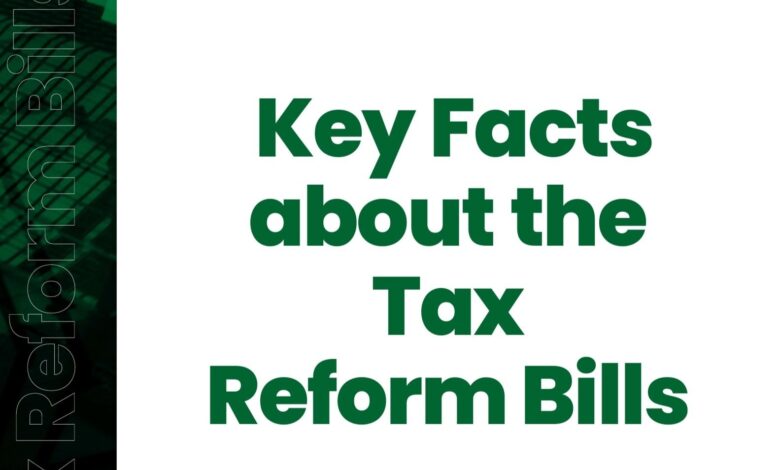Some Key Facts About Nigeria’s Tax Reform Bills

1. Changes to the income tax laws to facilitate remote work opportunities for Nigerians in Nigeria within the global business process outsourcing. This will empower our youths to play a key role in the digital economy space.
2. Zero rated VAT and other incentives to promote exports in goods, services, and intellectual property.
3. Tax exemptions for small businesses with annual turnover of N50 million or less including withholding tax, value added tax, and 0% corporate income tax rate.
4. Exemption from PAYE (personal income tax) for minimum wage earners and reduced tax burden for over 90% of all workers in the private and public sectors.
5. VAT at 0% for food, education, healthcare, and exemption for rent, public transportation, fuel products, and renewable energy. These items constitute an average of 82% of household consumption and nearly 100% for low income households to ameliorate the rising cost of living for the masses.
6. Introduction of the Tax Ombudsman to advocate for an improved tax system and protect vulnerable taxpayers.
7. Reduction of corporate income tax rate from 30% to 25% over the next 2 years and elimination of earmarked taxes on companies to be replaced with a harmonised single levy at a reduced rate.
8. Elimination of minimum tax on loss-making companies and those with low profit margins.
9. Grant of input VAT credit to businesses on assets and services to improve investment competitiveness and reduce the cost of goods and services.
10. Redesign of the personal income tax brackets and rates, VAT and capital gains tax to be progressive while protecting the poor.
11. Changes to permit the payment of taxes on foreign currency denominated transactions in naira to reduce the pressure on the exchange rate and simplify compliance for businesses.
12. Proposal to repeal over 50 nuisance taxes and levies, and harmonise the remaining taxes to a single digit.
13. Introduce an equitable basis for VAT revenue sharing to ensure that states without many headquarter companies are fairly treated and rewarded for their economic contributions.
14. Rationalisation of tax incentives to reduce uncertainty and provide a level playing field for all investors.
15. A new National Fiscal Policy to set the framework for fair taxation, responsible borrowing, and sustainable spending.






